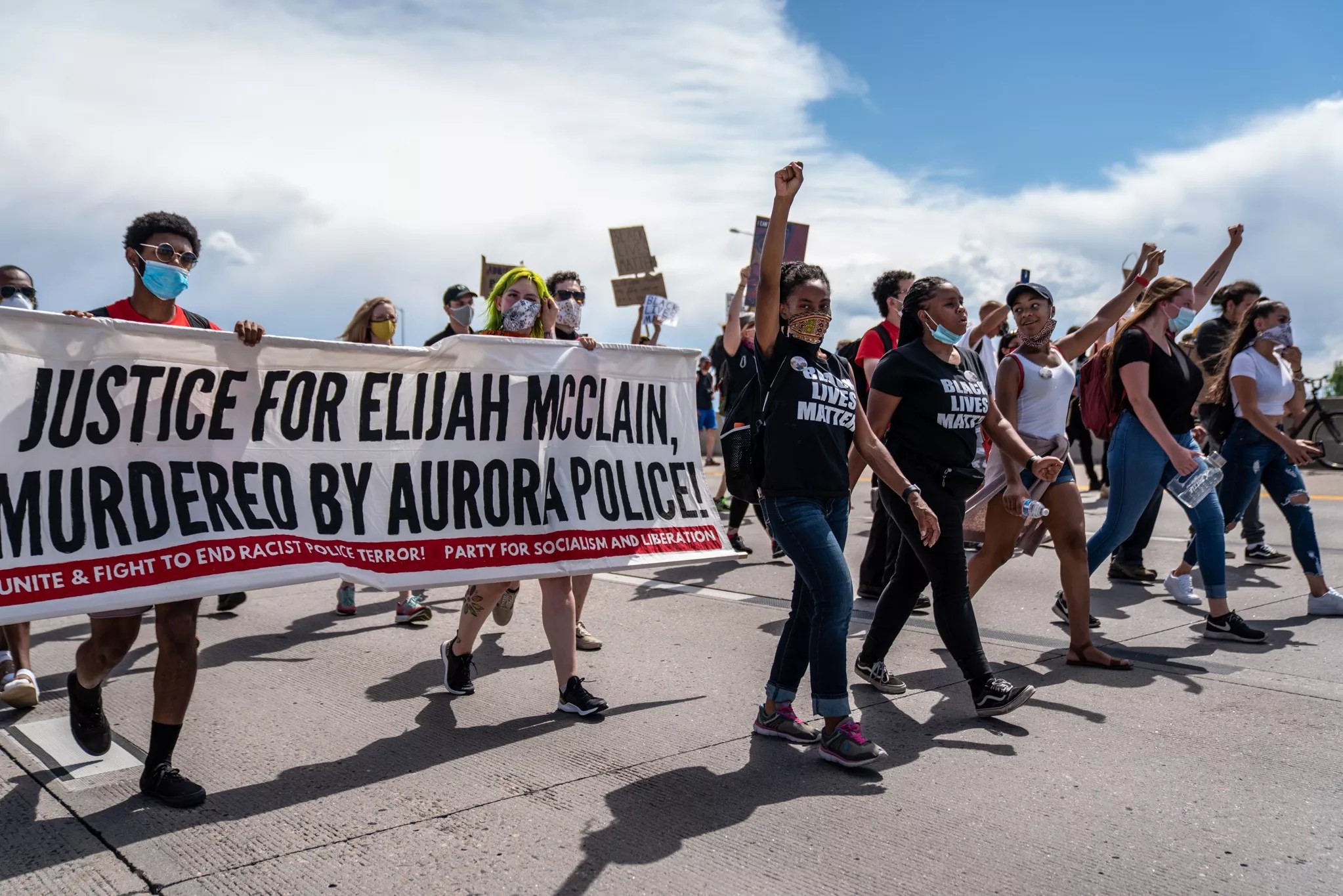
Michael Emery Hecker

Audio By Carbonatix
During a June 24 motions hearing in Adams County Court, Daxx Dalton’s trial on charges stemming from a protest on July 3, 2020, demanding justice for Elijah McClain was rescheduled from August to the week of November 28.
Dalton is accused of three misdemeanors: false imprisonment, engaging in a riot, and obstructing government operations at an Aurora police station on the University of Colorado Anschutz medical campus. He is the last protester with charges still pending in Adams County.
The protests came nearly a year after McClain’s 2019 death following a violent encounter with Aurora police and paramedics, who injected him with enough ketamine for someone twice his size. After a brief investigation, then-17th Judicial District Attorney Dave Young said the officers involved did nothing wrong, but protests after George Floyd’s death at the hands of Minneapolis police brought new attention to McClain’s treatment. Ultimately, Governor Jared Polis asked Attorney General Phil Weiser to investigate; in September 2021, the AG issued a 32-count indictment against the officers and paramedics involved.
Before those indictments came down, the only people who’d been charged with crimes in connection with Elijah McClain’s case were those who’d demonstrated, demanding justice for his death. Adams County Judge Leroy Kirby, who is also the judge in Dalton’s case, had dismissed the most severe charges against protest organizers Joel Northam, Lillian House and Eliza Lucero, including false imprisonment, in March 2021. That May, 18th Judicial District DA John Kellner and new 17th District DA Brian Mason dropped all remaining charges in their jurisdictions except those against Dalton and protester Cameron Frazier, who was sentenced to two years of probation for a felony weapons charge.
The 18th District DA’s Office had filed the false-imprisonment charge after Dalton allegedly tied the doors to the Aurora police station closed, trapping the officers inside the building, and has “expressed that that is why they are continuing the prosecution of that charge,” says Jessica Corey, Dalton’s public defender.
During the June 24 hearing, Corey entered three motions. One asked that the charges be dismissed because Dalton’s actions were protected by the First Amendment, another asked that they be dismissed because the DA’s office allegedly committed a Rule 16 discovery violation, and a third asked for the current prosecutors on the case to be recused and for a special prosecutor to be appointed.
Corey argued that Assistant DA Jess Redman and prosecutor Timothy Twining should not be in charge of the prosecution because the DA’s office had participated in covering up the circumstances of McClain’s death. “There is no, in my mind, public confidence – or confidence at all – that this office could fairly prosecute this case,” Corey says.
But Kirby dismissed that motion, saying that he could not find a conflict of interest nor an appearance of impropriety. Because of the immense amount of discovery for the trial, he added, a new prosecutor might not be able to catch up in order to effectively prosecute the case.
The amount of discovery also came into play with the motion regarding Rule 16, which governs pretrial discovery in Colorado. Corey argued that the prosecution breached the rule by not providing the defense with a video that reportedly shows Dalton tying the doors of the station closed; it was taken by a body-worn camera on an officer inside the station.
“The video that we do have is a higher vantage point from far away,” Corey says. “It can’t show what Mr. Dalton is doing with his hands; it can’t show what anyone’s doing.” Twining gave the defense a screen capture from the video but not the video itself, she told the judge, despite many requests for the video.
When Twining explained that he believes the video is available to the defense on a new cloud system that the Aurora Police Department recently switched to for discovery, Corey responded that there are over 1,500 links to videos from body-worn cameras in the evidence files, and none of those videos bears the original name of the video in question. According to Twining, at the beginning of discovery for Dalton’s trial, the Aurora Police Department used a different method for labeling; in the process of switching from the old method to the new, all of the evidence was given different names.
Kirby gave the DA’s office fourteen days from June 24 to highlight the video’s whereabouts, expressing concerns that otherwise the defense might not find it.
Kirby also said that he needed more information before he could make a decision on the First Amendment motions. While he was the judge for the case of three protesters whose charges were dropped, Kirby said it would be improper for him to rule based on previous knowledge, and that he needed Corey to provide context specific to Dalton’s case.
In the meantime, the trial was rescheduled to November after Twining said that he expects to call fifteen or sixteen witnesses. Preparing for those witnesses, as well as going through all the evidence, made a later trial date preferable, Corey said, and Dalton agreed to waive his right to a speedy trial in order for it to be postponed.
The motion hearing for that trial date will be August 10. In the meantime, Corey has asked for a testimonial motions hearing in order to provide the necessary context for the judge to consider the First Amendment argument.
Dalton began exercising his First Amendment rights at a young age. In fifth grade, he was suspended from Aurora Frontier K-8 for wearing a shirt that read, “Obama is a terrorist’s best friend.”